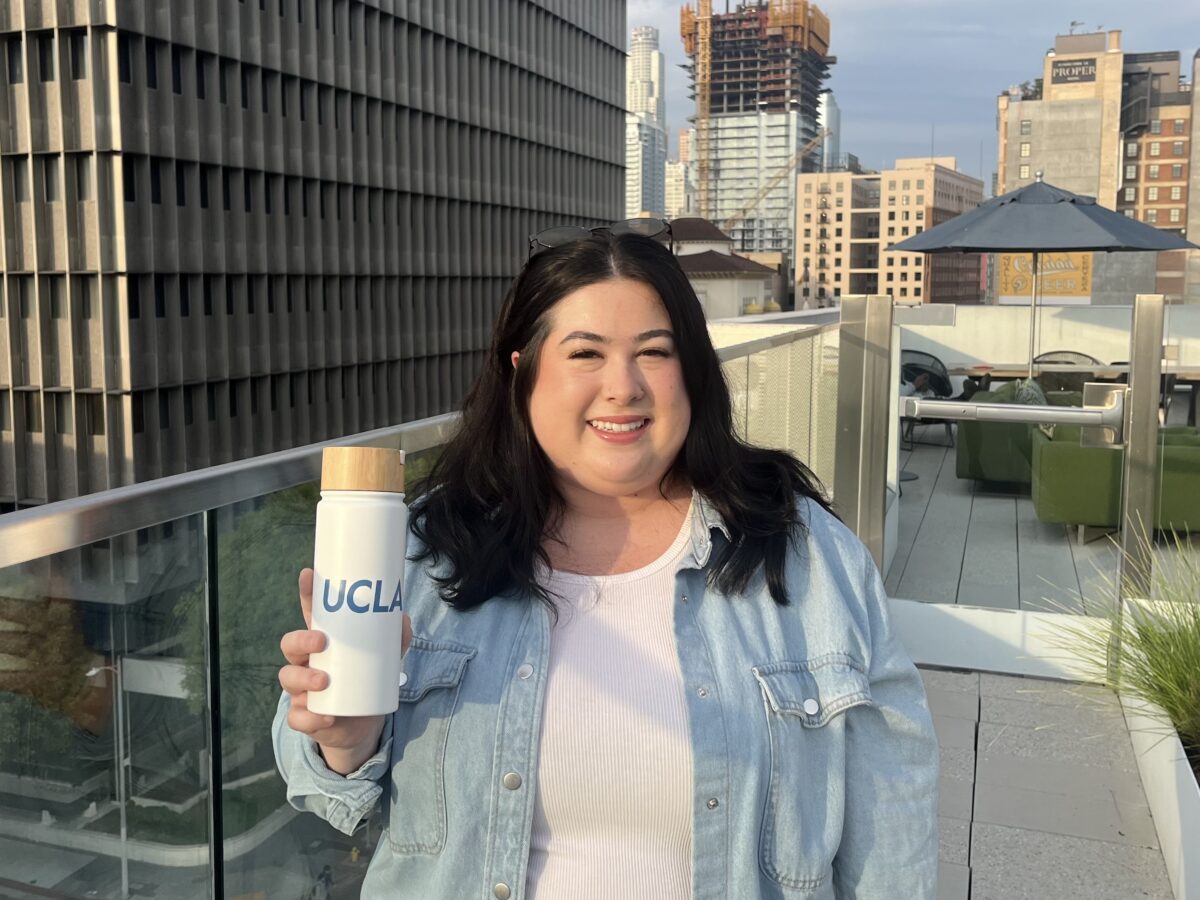By Karen Hallisey
Every two weeks, approximately 25 to 45 new hires who come through the Human Resources & Payroll Operations Center (HRPOC) at Campus Human Resources hit the hills of Westwood, step through campus doors, and spend their first workday at UCLA attending a New Employee Orientation (NEO). The full-day in-person affair for the departments HRPOC provides services to, which includes but is not limited to UCLA Administration units, Office of the Vice Chancellor and Chief Financial Officer units, the Chancellor’s Organization, and the K-12 schools, among others, covers relevant, valuable topics for employees—campus services, benefits, and a tour. Also on the agenda is sustainability.
The intention, with the HRPOC’s NEO, is to make people’s first day special — show them this is the job they want, where they want to be, and introduce what UCLA is all about. And better equip these new hires with the knowledge and resources they need to successfully transition into their campus roles.
The push for more sustainability in the NEO was a joint effort between the HRPOC and multiple Administration units such as the Office of the Administrative Vice Chancellor, Organizational Effectiveness & Development, and Administration Marketing & Communications, to name a few.
Charlyn A. Lynton-Estrada, a senior human resources business partner at the HROC, was one of the Bruins involved in integrating sustainability into the presentation for onboarding new Bruins. In her role, Lynton-Estrada deals with all things HR, from compensation to talent acquisition and employee relations. She manages multiple responsibilities— including developing the NEO outline and connecting with UCLA Sustainability to share their work at the orientation presentation.
“I feel it’s good for new employees to understand that sustainability is part of UCLA’s culture. Everywhere we go on campus, you see those bins with the three titles: compost, recycle, and landfill. They’re there, but people don’t always know what they mean and probably want some background information. I felt it was important to have Sustainability speakers come in and explain what we do here,” said Lynton-Estrada.
“The environment and the world are changing. I think having that awareness—whether in your home or at work—should be an ongoing conversation.”
The sustainability portion of the orientation covers the following:
- The positive impact of sustainability: reduced pollution, conserved resources, protected natural habitats, improved public health, job creation, and a stimulated economy.
- The comprehensive campus sustainability plan and its goals, including using clean energy, improving food systems, reducing waste, and supporting biodiversity
- Steps to lead a sustainable lifestyle: sorting waste properly, eating plant-based meals, commuting sustainably instead of driving, skipping single-use items, shopping secondhand, connecting with nature, and more.
- How to get involved on campus and be part of the solution.
There’s even a takeaway from the event to encourage green behavior. NEO attendees receive a reusable swag bag containing a reusable bottle and a lunch box made of bamboo and other sustainable materials.
The HRPOC also practices the zero waste habits they preach at these sessions. NEO attendees get reusable name tags instead of paper stickers. Participants are also encouraged to use water refill stations with their new reusable bottle, which replaces single-use plastic bottles at the event.
“Including sustainability in employee orientations is important. We aim to provide tools to contribute and get involved. Sharing these efforts helps people understand sustainability is part of our university culture—and not an afterthought,” said Nurit Katz, UCLA’s chief sustainability officer.
